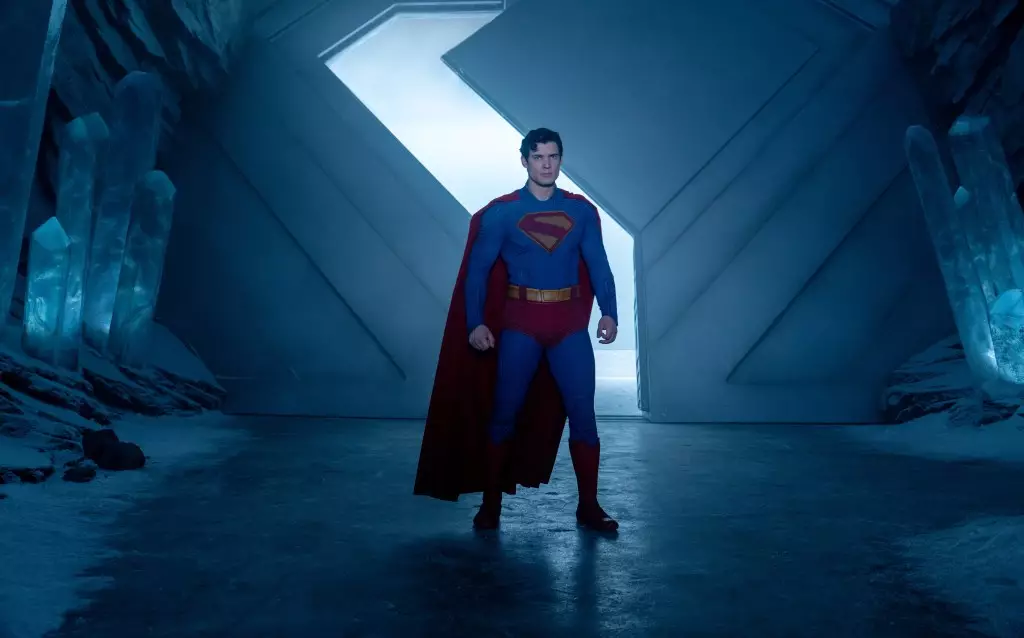Superman’s latest reboot, helmed by James Gunn, bursts onto the international scene with ambitious projections and record-breaking headlines. Yet, beneath the hoopla lies a complex reality: initial box office success does not necessarily translate into meaningful cultural or financial victory. While studios trumpet the $40.3 million across key markets and emphasize the record-breaking numbers in certain territories, this glosses over the underlying issues such as market saturation, inconsistent audience engagement, and the false security of early sums. For a franchise with such a storied history, the current results reveal more about marketing hype than genuine revival. The narrative of a triumphant comeback is, at best, premature; behind the scenes, green shoots of doubt are sprouting.
Carving a Niche in a Competitive Sector
In a crowded superhero landscape—where Marvel, DC, and countless indie productions jostle for attention—the newest Superman installment claims a significant opening. The film’s debut in nine international markets on Wednesday, followed by 78 territories today, appears impressive on paper. But a deeper analysis exposes the fragility of this achievement. France’s modest $1.3 million start, although promising in context, is just a drop in a vast ocean of global box office figures. Similarly, Korea’s $700,000 opening, while seemingly strong contingent upon local context, is not indicative of cultural resonance, especially in a depressed market. Such numbers may seem robust superficially, but they often mask the reality that Superman remains a niche appeal in many territories, struggling to adapt to diverse audiences and market dynamics that have shifted away from traditional blockbuster mindsets toward more nuanced storytelling.
The Illusion of Momentum and Market Realities
It’s easy to get caught up in the hype—such as the film claiming the biggest opening day of 2025 in Australia and Brazil, or the $2.2 million debut in Mexico marking a significant milestone. However, these headlines serve more as marketing tools than true indicators of long-term popularity. Opening weekend numbers are notoriously volatile and often inflated by strategic releases, festival buzz, and limited viewer choice. The notable fact that China’s initial $2.4 million opening will likely have minimal effect on the film’s overall global trajectory illustrates this point. The Chinese market, traditionally a powerful player for Hollywood and studio franchises, appears increasingly detached from the narrative.
This disconnection exposes a broader truth: market-specific factors—such as local preferences, competition, and cultural zeitgeist—are more decisive than ever. The film’s international success should not be romanticized as a sweeping victory but rather scrutinized as an initial splash within a complex ecosystem that requires more than just a strong opening to sustain momentum. The fleeting nature of such numbers highlights the fragility of the so-called “record-breaking” narrative, raising questions about the film’s capacity to maintain audience interest beyond first-week hype.
Revisiting the Power Dynamics of Blockbuster Culture
At its core, the recent Superman installment exemplifies how blockbuster culture has become increasingly precarious. Studios rely heavily on initial figures to generate momentum, but the narrative they craft often overlooks the realities of audience fatigue, shifting media consumption habits, and the growing skepticism about franchise fatigue. The film’s performance, though seemingly strong in certain territories, signals a changing landscape where blockbuster formulas no longer guarantee sustained success.
In particular, the notion that Superman, an icon once deemed universally compelling, can now command markets with mere surface-level numbers reveals a significant ideological shift. Audiences are seeking authenticity, innovative storytelling, and diverse narratives—elements that traditional superhero fare, regardless of how well it’s marketed, often fails to deliver. Instead of celebrating superficial surpasses like top opening days or international record-breaking, critics and industry observers should focus on whether these numbers translate into cultural relevance or simply fleeting financial blips.
Moreover, the overemphasis on international markets distracts from the internal challenges facing Hollywood and DC specifically. While some territories show promise, others highlight the degree to which superhero franchises are losing their universal appeal. This fragmentation suggests that even the most carefully crafted global marketing strategies cannot hide the underlying decline in audience engagement with predictable superhero narratives. The industry must confront the uncomfortable truth: blockbuster dominance is waning, and an overreliance on superficial numbers risks obscuring deeper issues related to creativity, diversity, and sustainable storytelling.

Leave a Reply